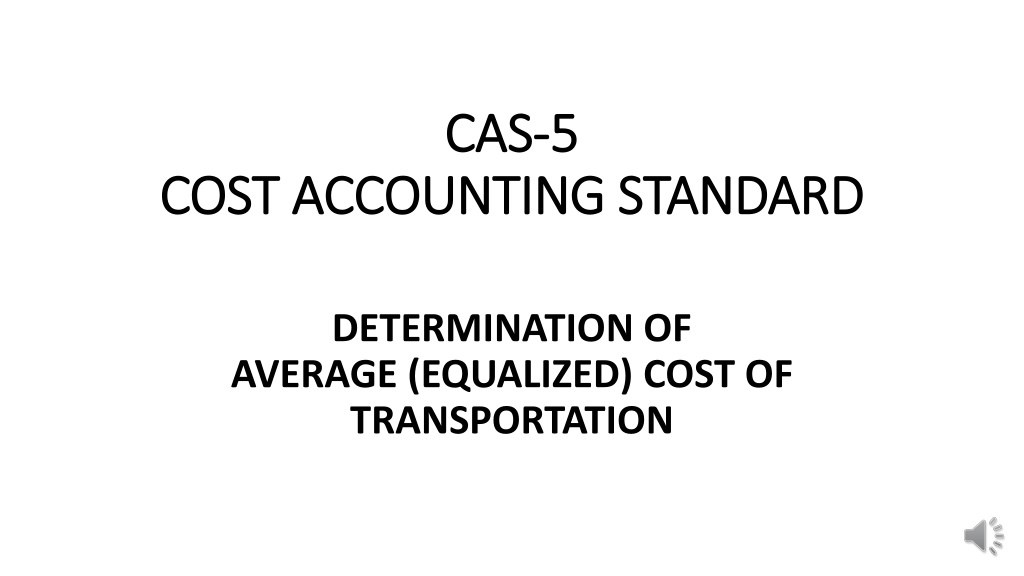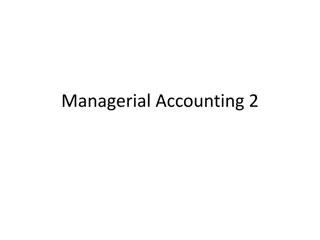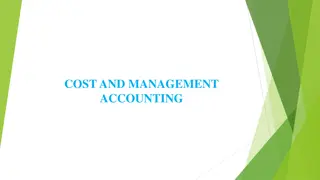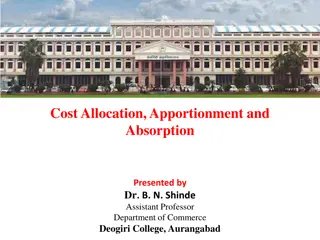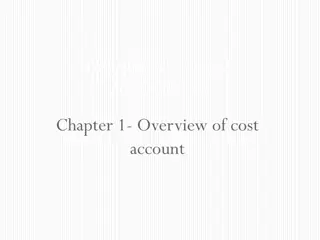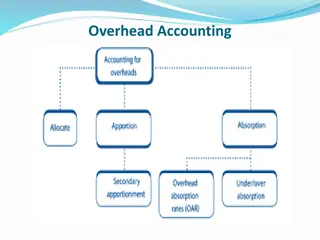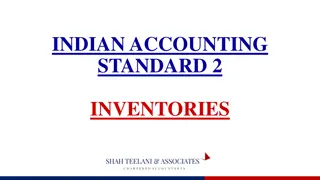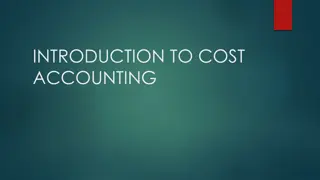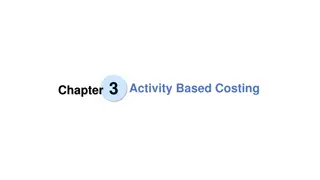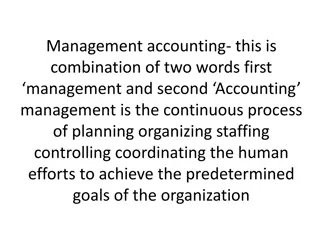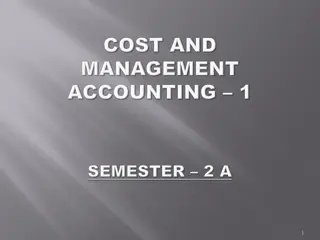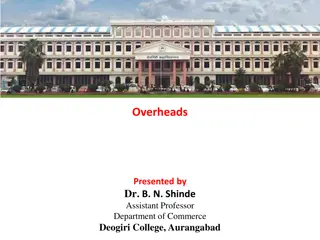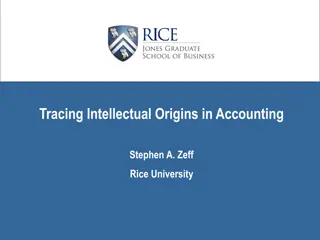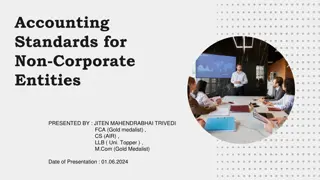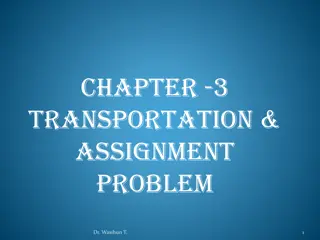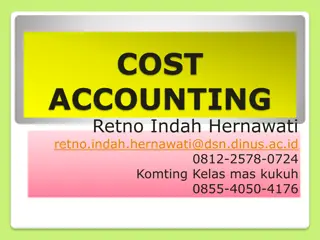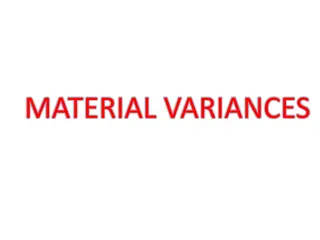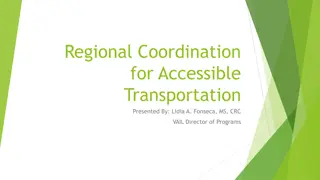Cost Accounting Standards for Determining Transportation Costs
Understanding the importance of transportation costs in procurement and distribution, this guide outlines the standards for determining average costs, separation of transportation costs in accounting records, objectives for maintaining cost uniformity, components of transportation costs, and treatment guidelines for inward and outward transportation costs.
Download Presentation

Please find below an Image/Link to download the presentation.
The content on the website is provided AS IS for your information and personal use only. It may not be sold, licensed, or shared on other websites without obtaining consent from the author. Download presentation by click this link. If you encounter any issues during the download, it is possible that the publisher has removed the file from their server.
E N D
Presentation Transcript
CAS CAS- -5 5 COST ACCOUNTING STANDARD COST ACCOUNTING STANDARD DETERMINATION OF AVERAGE (EQUALIZED) COST OF TRANSPORTATION
Transportation cost is an important element of cost for procurement of materials for production and for distribution of product for sale. Therefore, Cost Accounting Records should present transportation cost separately from the other cost of inward materials or cost of sales of finished goods.
objectives To bring uniformity in the application of principles and methods used in the determination of averaged/equalized transportation cost. To prescribe the system to be followed for maintenance of records for collection of cost of transportation, its allocation/apportionment to cost centres, locations or products.
Cost of Transportation comprises of the cost of freight, cartage, transit insurance and cost of operating and other incidental charges whether incurred internally or paid to an outside agency for transportation of goods but does not include detention and demurrage charges.
Treatment of cost Treatment of cost: Inward transportation costs shall form the part of the cost of procurement of materials which are to be identified for proper allocation/ apportionment to the materials / products. Outward transportation cost shall form the part of the cost of sale and shall be allocated /apportioned to the materials and goods on a suitable basis.
The following basis may be used, in order of priority, for apportionment of outward transportation cost depending upon the nature of products, unit of measurement followed and type of transport used : i) Weight ii) Volume of goods iii) Tonne-Km iv) Unit / Equivalent unit v) Value of goods vi) Percentage of usage of space
Calculation of passenger KM Total seating capacity= (10*50)+(15*40)= 1100 Capacity utilized= 1100*75/100*20/25=660 Average distance run in the month=8*10*30=2400 Effective passenger kms.= 660*2400=1584000
